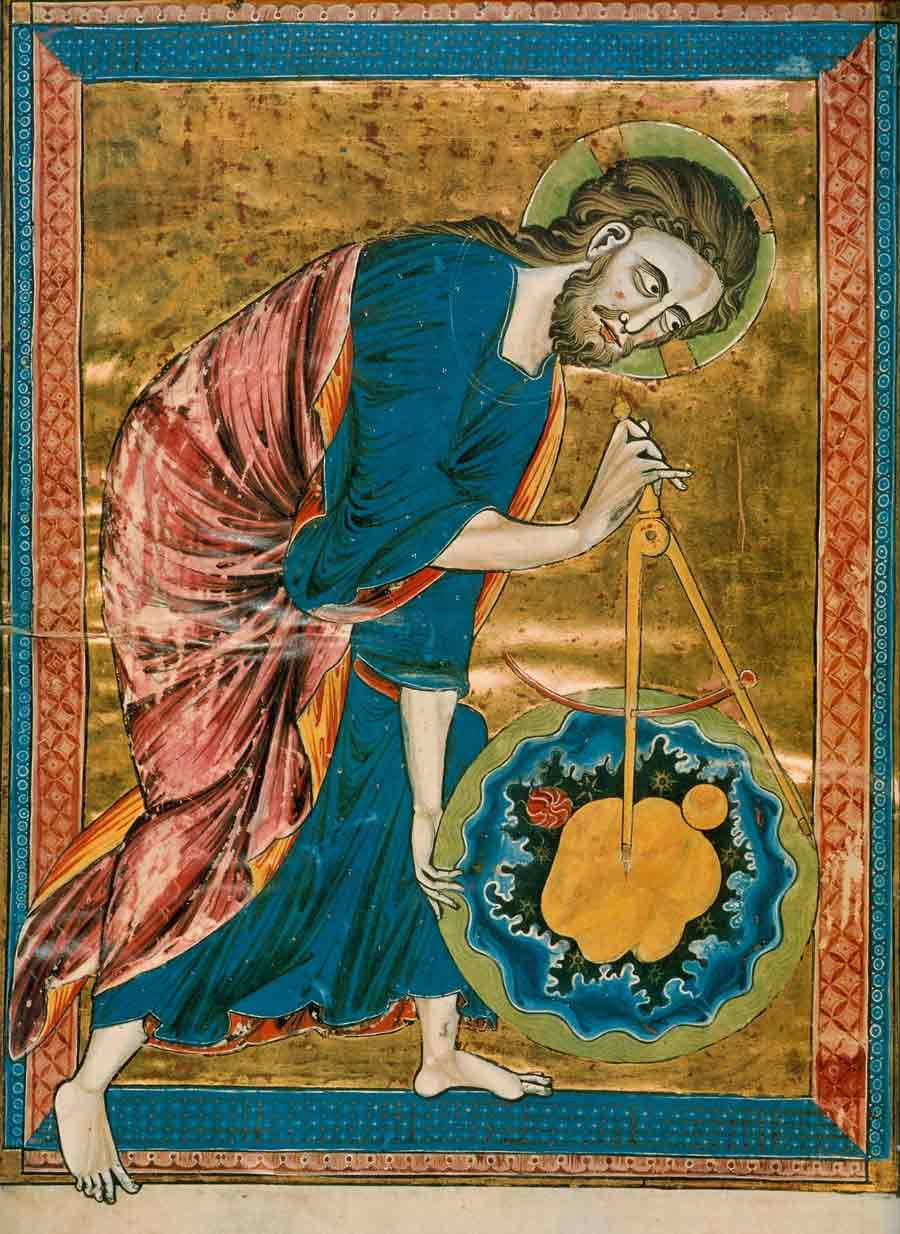The views expressed in our content reflect individual perspectives and do not represent the authoritative views of the Baha'i Faith.
Theological assumptions unique to Christianity explain why science was born only in Christian Europe. Contrary to the received wisdom; religion and science not only were compatible; they were inseparable. … Christian theology was essential for the rise of science. – Rodney Stark, For the Glory of God (2003)
Borrowing a phrase from Newton, essayist Noah Efron (Chair of the Science, Technology and Society program at Bar-Ilan University in Israel) notes that “for every myth is an equal and opposite myth.” He then produces a myth I had never heard before—that Christianity not only gave birth to modern science, but that, as Rodney Stark supposes, it was the only possible parent for that discipline.
He’s not alone in that claim. Father Stanley L. Jaki—professor of Physics at Seton Hall—has said that science was stillborn “in all ancient cultures, and had its only viable birth in Christian Europe.”
Anyone knowledgeable about the history of science in Europe has reason to question this claim, though hopefully, they will also recognize that Biblical teachings encourage rather than discourage the sort of rational inquiry that lies at the heart of modern science:
The heavens declare the glory of God, and the firmament shows His handiwork. Day unto day utters speech; night unto night reveals knowledge. There is no speech nor language where their voice is not heard. Their line has gone out through all the earth, and their words to the ends of the world. – Psalm 19:1-4
This Biblical passage issues us an open invitation to explore the world, the cosmos and our own inner landscape. The physical Universe “utters speech” and “reveals knowledge” without words. This idea—that the physical universe speaks eloquently of its Creator—is a foundational concept in all revealed Faiths. So, too, is the expectation that mankind will use its considerable and unique faculties to “hear” what the universe has to say.
Jesus Christ explains that we must judge of things by their “fruits” or results (Matthew 7:17-20). He later illustrates the point, using the metaphor that one knows summer is near by observing the evidence in natural phenomena (Matthew 24:32). These are only two of the many passages in which Christ invokes the practice of observation and the use of the human rational faculty in understanding the world and making decisions.
The source teachings of Judaism and Christianity clearly promote the exploration of the universe through observation and reason. It should be no surprise, then, that many Christian scholars studied natural history. From Descartes to Newton, Occam to LeMaitre, men of the Christian faith have dived headfirst into a study of the universe they believe God created. But is it fair to say that only Christianity could have given birth to the physical sciences?
As Efron points out in his essay, Christian ideas of the universe are not exclusively Christian ideas. They have their roots in Judaism, are shared by other revealed religions as diverse as Buddhism and Zoroastrianism, and emerge from cultures as widely separated as the Chinese and the Greek. Muslim scholars such as Ibn Sina, Ibn Rushd and others also had a heavy influence on science and culture.
In fact, everyone involved in bringing science to the world stood upon the shoulders of the scholars who went before. No science leapt, fully formed, from a particular worldview, culture, religion or philosophy. Realistically, the Christian scholars of medieval Europe owed much of their science to the work their Indian, Persian, and Greek forebears incorporated and expanded upon. By the ninth century, there were more volumes of scientific interest translated into Arabic than into Latin or any other language.
 The claim that Christianity gave birth to modern science is significant in an age in which unity in diversity has become a survival skill. Dr. Efron notes that when people voice this claim, they are not only saying something about Christians and ”others,” but they are also saying something significant about science. The claim is, in essence, that science has only one history, one point of origin, and that it can only be understood in one way.
The claim that Christianity gave birth to modern science is significant in an age in which unity in diversity has become a survival skill. Dr. Efron notes that when people voice this claim, they are not only saying something about Christians and ”others,” but they are also saying something significant about science. The claim is, in essence, that science has only one history, one point of origin, and that it can only be understood in one way.
This claim about the path to knowledge reminds me of a similar claim an evangelical Christian friend made about the path to God. He asked how I and my husband had come to belief. I was raised a Christian and my husband was raised an agnostic, but we both came to our Baha’i belief—which included a reverence for Christ—through love and reason. My evangelical friend insisted that this was wrong. There was only one way to come to God and that was through fear and acknowledgement of one’s abject worthlessness. That was the way he had come to belief, and no amount of scriptural evidence to the contrary could convince him that God might be found in any other way.
It takes only a moment of reflection to grasp that this particular concept of Christianity is light-years from the spirit of belief and faith that inspired the early Christian scientists and philosophers. It reduces both the religion and science of non-Christian scholars to admirable insignificance, devoid of the sort of intellectual quality Christian scholars alone are supposed to possess.
Jesus Christ required that His followers subject claims of truth to the measure of reason—judging such things by their fruits or results. Any objective look at the history of science reveals that it is, first of all, a human endeavor and that the humans who shaped it—for good and ill—came from every conceivable background. Certainly, one can make the case that there have been more significant contributions made in the foundational years of the sciences by believers of a number of faiths, but from the 19th century onward, the number of unaffiliated, agnostic and atheist contributors to science have grown.
Yet, regardless of the belief system of the scientist (and it’s important to bear in mind that science itself is not a belief system), science can be employed malignly if it is not set in a moral framework that adheres as much to Christ’s Golden Rule (“Whatever you would have men do to you, do likewise to them.”) as it does to Socrates’ Triple Filter (“Is it true? Is it good? Is it useful?”)
Both religion and science can and have become vehicles for dogmatic human interests. At the heart of the Baha’i Faith is the firm conviction that we must do our utmost to keep that from happening. As Abdu’l-Baha stated in a speech in New York in July of 1912:
Reason is the first faculty of man, and the religion of God is in harmony with it. — Abdu’l-Baha, The Promulgation of Universal Peace, p. 231.
Next: Did the Scientific Revolution Liberate Science from Religion?
















Comments
Sign in or create an account
Continue with Googleor